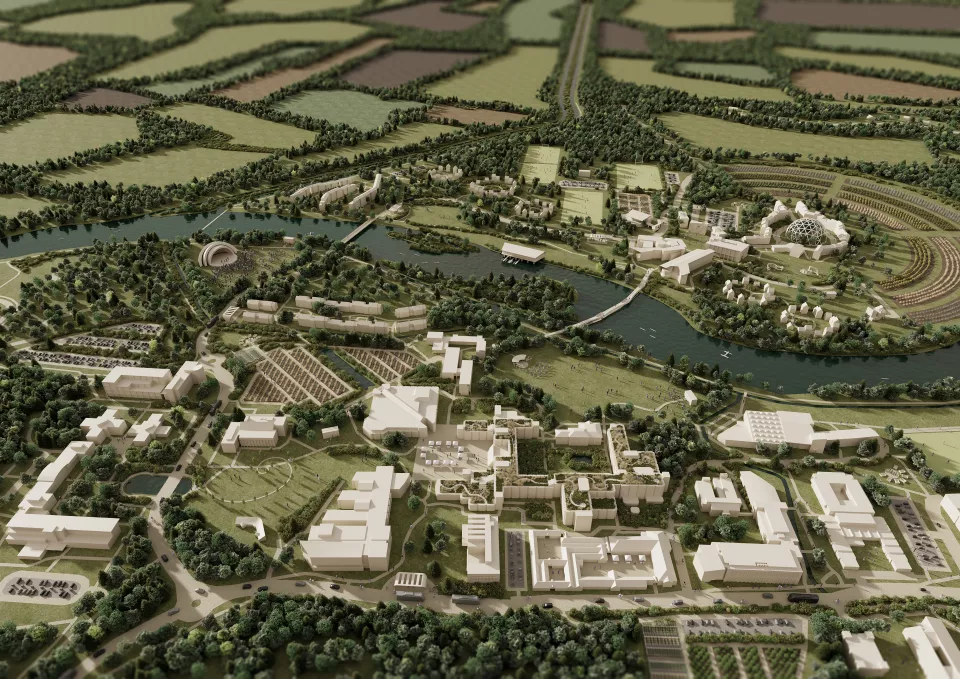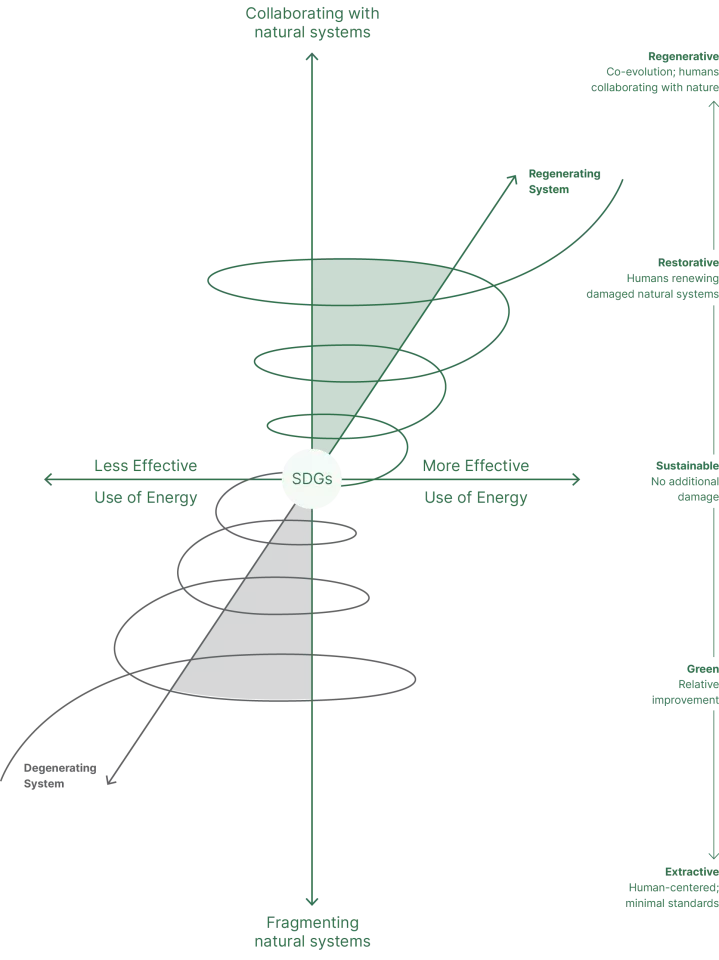
A speculative view of how the UL campus may evolve on the journey toward becoming a Sustainable University.
Sustainability is the first step
When we aim for sustainability from a systemic perspective, we are describing the efforts made to sustain the patterns that connect and strengthen the whole system in question. In this way, sustainability’s primary aim is to maintain systemic health and resilience across different scales (from local, to regional and global). Ultimately, true sustainable development requires us to become a society that is resilient and adaptable, with a culture of care for all forms of life on our planet at its core. This can only be achieved through understanding how living systems and human cultures can come into conviviality within each unique bioregion, and then designing our human structures in a way that takes these regional and local characteristics into account.
Sustainability is a noble goal, but it is only our first step. The word sustainability itself does not refer to what is trying to be sustained. This invites us to consider what aspects of our current world we wish to sustain. More importantly, it creates the space for us to consider what we should leave behind.
Toward a Regenerative Society
Regenerative cultures go beyond sustainability: they safeguard and grow bio-cultural abundance for future generations of humanity and for life as a whole. Creating regenerative systems is not simply a technical, economic, ecological or social shift: it has to be united with an underlying shift in the way we view ourselves, our relationships with each other and with life as a whole. In this way, the aim of creating regenerative cultures transcends – yet includes – sustainability.
While the path to a regenerative culture is clouded by the challenges of the present, seeds of its emergence can be found around the world. At the core of creating regenerative cultures is an invitation to our community to begin living the questions together. If we can become open and curious enough to explore and embody new ways of relating to self, each other and to life as a whole, UL will become a pioneer for which all HEIs can learn from. Universities are uniquely positioned to act as the critical nexus where these relationships will be forged, questions lived and futures manifested. We must aspire to nothing less if we wish to create a thriving future for all life on earth.

Diagram Reference: Bill Reed (2007)